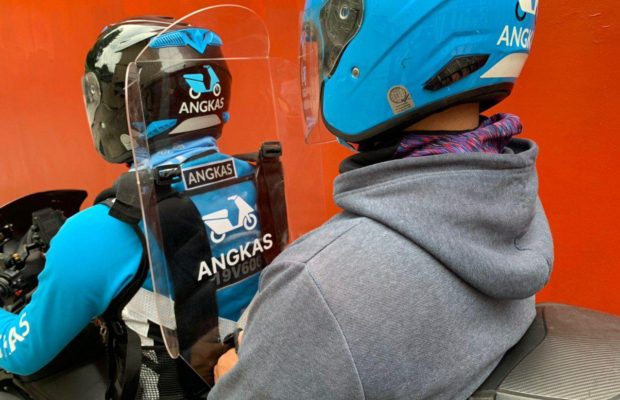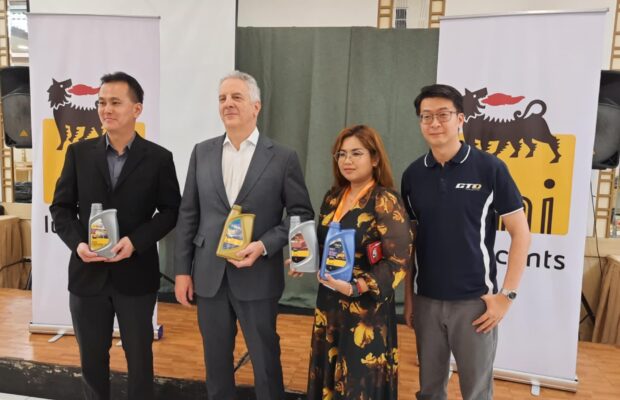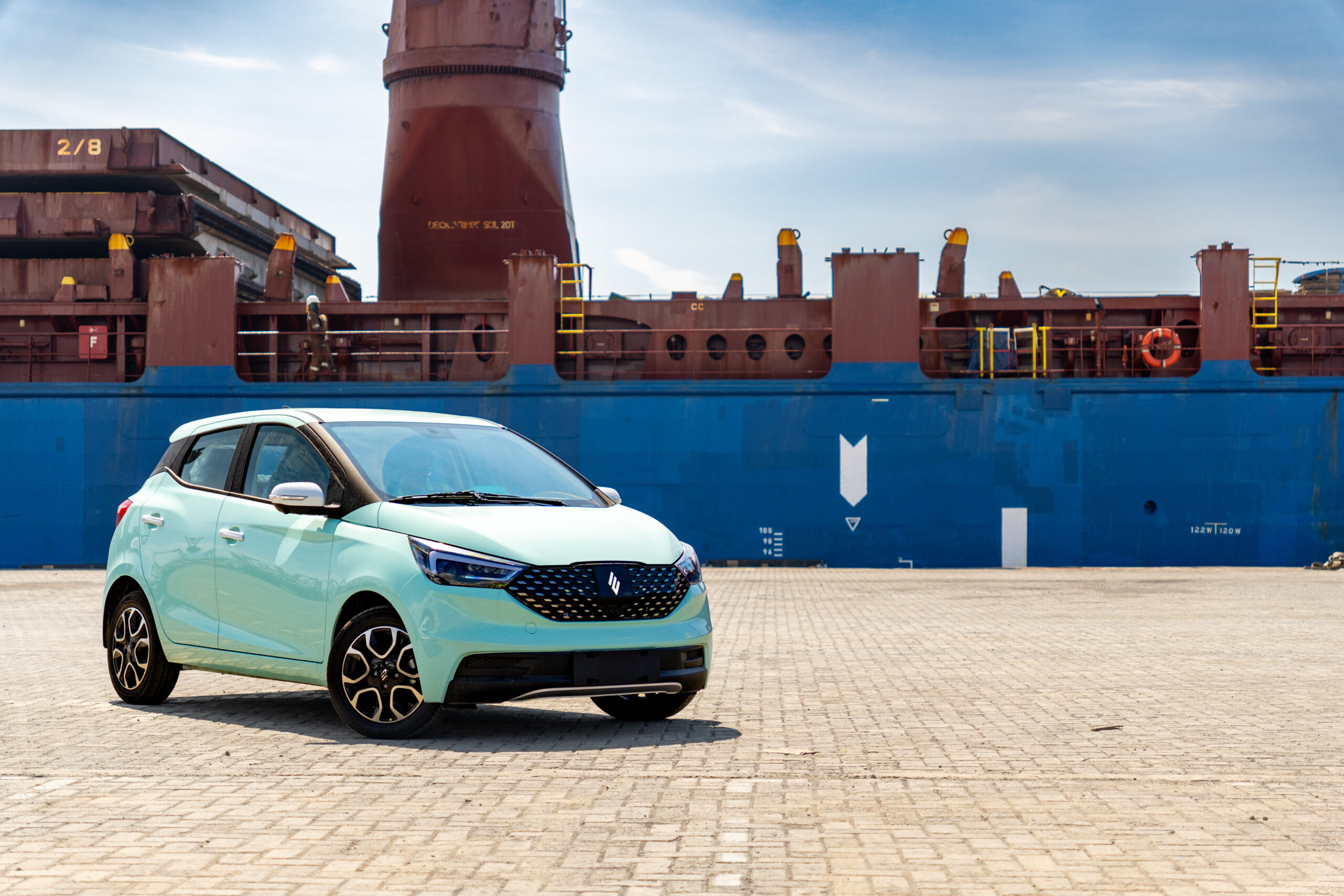ANGKAS READIES MOTORCYCLE TAXI SAFETY & HEALTH PROTOCOL FOR IATF CLEARANCE

Pioneering app-based motorcycle taxi ride-hailing service Angkas has prepared a set of innovative health and safety guidelines aimed at mitigating the transmission of the coronavirus when riding pillion on motorcycle taxis.
In a press briefing held Friday, Angkas Chief Transport Advocate George Royeca explained that they submitted the proposed health and safety protocol to the Inter-Agency Task Force (IATF) in the hope of helping the government initiate further studies to enhance the safety of motorcycle taxi services.
Royeca stressed that they hope to be able to work with the government in pursuing further studies on how to make motorcycle taxi services safer during the pandemic so they can be rolled out in the future to pre-registered passengers and ease the transport struggle of commuters going to work.
Quezon City Representative Precious Hipolito Castelo said in the same briefing that the safety protocols presented by Angkas are more than enough to significantly decrease virus transmission and ensure that both passengers and riders remain safe from coronavirus infection.
This statement was in line with Castelo’s earlier call for the government to resume the operation of motorcycle taxis to help ease the burden of workers returning to their jobs as lockdown restrictions eased.
“There’s a strong public clamor for us to allow the operation of motorcycle taxis, not only for the benefit of the riders who need to get back their livelihood, but most especially for the commuting public, the working class,” she shared.
Dr. Vicente Y. Belizario Jr., Dean of the UP Manila College of Public Health, echoed Castelo’s call for the resumption of motorcycle taxi operations stating that it will help mitigate the spread of the coronavirus while helping workers go to and from their places of work.
“We cannot wait for a vaccine to come before motorcycle taxis are allowed to operate again,” Belizario noted. “We are suffering because of a lack of opportunities to earn a living compounded by the lack of public transport opportunities during the quarantine. We at the public health sector are willing to work with the transport sector to minimize the threat that COVID-19 poses to the riding public,” he added.
He also stressed that the plastic shield included in Angkas’ proposed safety protocol will help mitigate virus transmission because it adds an extra layer of protection that will complement other safety measures such as the wearing of a helmet with a face shield and a mask, and the sanitizing of hands.
“I was talking to a medical expert and consulting about the safety of motorcycle taxis and he said that the chances of getting COVID-19 while riding motorcycles in open air and while the vehicle is moving is diminished,” Belizario revealed. “I’m not saying it’s zero, but compared to enclosed air-conditioned rooms, it is safer.”
Belizario also emphasized that addressing the COVID-19 problem must involve a combination of measures. “It is not the responsibility of one person or entity. There is the role of the motorcycle driver, there is the role of the passenger, there is the role of policemen enforcing the speed limit, and there is the role of the Department of Health for advising the IATF,” he said.
Part of the Angkas proposal is to make motorcycle taxis much like a shuttle service with pre-registered passengers for select companies. According to Royeca, this will ensure strict contact tracing for those who might test positive for the virus in the future. “To date, Angkas has a base of four million users that can help add to the government’s contact tracing database,” Royeca noted.
“We also propose that all passengers should strictly use their own helmets and carry their own face masks to limit contact,” Royeca noted. “Also, all bikers will be subjected to regular COVID-19 testing,” he added.
“We hope to work with the IATF and the DOH to monitor the results and eventually recommend guidelines that can be adopted by both private motorcycles and motorcycle taxis alike. If the design is approved by the government and the medical experts, we commit to make the final shield design mold for free to the public,” Royeca declared.
Councilor and former Quezon City representative Winnie Castelo, for his part, echoed the others’ call to allow the resumption of motorcycle taxis, provided these come with safety measures such as a plastic shield between the driver and passenger.
“This will truly help troubled employees to go to and from their places of work. They no longer have to endanger themselves by trying to fit into crowded buses or jeeps which increases their risk of infection,” Castelo noted, adding that many workers have been laid off because they were frequently late or absent because of a lack of transport options.
“Angkas is known to be not only a strict advocate of safety but a highly innovative transport company,” Castelo stressed. “Therefore I am confident that, once they are given the directive to offer their services again, they can think of innovative ways to ensure the safety of both the passengers and the motorcycle taxi riders themselves,” he added.
“The resumption of motorcycle taxi services will also definitely help motorcycle riders resume their livelihood in this highly challenging time when so many people have lost their jobs,” the councilor said.
























0 comments